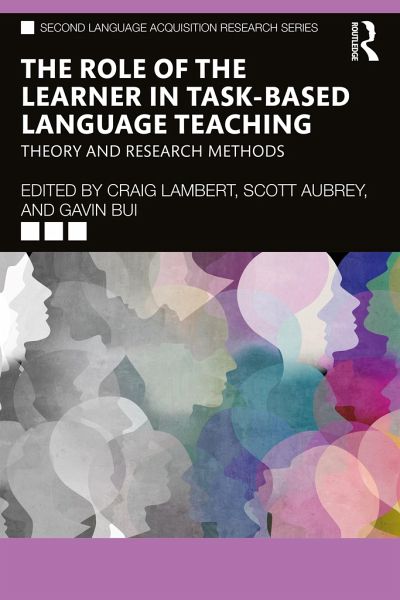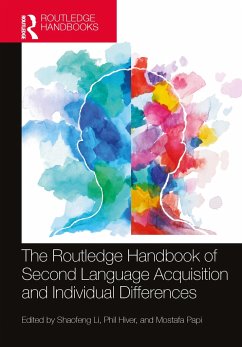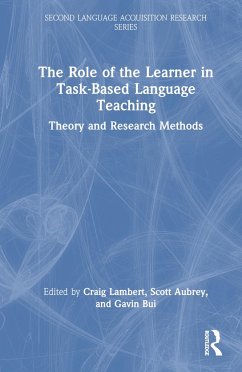
The Role of the Learner in Task-Based Language Teaching
Theory and Research Methods
Herausgegeben: Lambert, Craig; Aubrey, Scott; Bui, Gavin
Versandkostenfrei!
Versandfertig in 6-10 Tagen
42,99 €
inkl. MwSt.
Weitere Ausgaben:

PAYBACK Punkte
21 °P sammeln!
This comprehensive, forward-looking text is the first holistic research overview and practical methods guide for researching the role that affective and conative factors play in second language learners' task performance and language acquisition. It provides a long overdue update on the role of the learner in task-based language teaching (TBLT).The book brings together theoretical background and major constructs, established and innovative methodological and technological tools, cutting-edge findings, and illuminating suggestions for future work. A group of expert scholars from around the worl...
This comprehensive, forward-looking text is the first holistic research overview and practical methods guide for researching the role that affective and conative factors play in second language learners' task performance and language acquisition. It provides a long overdue update on the role of the learner in task-based language teaching (TBLT).
The book brings together theoretical background and major constructs, established and innovative methodological and technological tools, cutting-edge findings, and illuminating suggestions for future work. A group of expert scholars from around the world synthesize the state of the art, detail how to design and conduct empirical studies, and authoritatively set the agenda for future work in this critical, emerging area of language learning and instructional design.
With a variety of helpful features like suggested research, discussion questions, and recommended further readings, this will be an invaluable resource to advanced students and researchers of second language acquisition, applied linguistics, psychology, education, and related areas.
The book brings together theoretical background and major constructs, established and innovative methodological and technological tools, cutting-edge findings, and illuminating suggestions for future work. A group of expert scholars from around the world synthesize the state of the art, detail how to design and conduct empirical studies, and authoritatively set the agenda for future work in this critical, emerging area of language learning and instructional design.
With a variety of helpful features like suggested research, discussion questions, and recommended further readings, this will be an invaluable resource to advanced students and researchers of second language acquisition, applied linguistics, psychology, education, and related areas.














